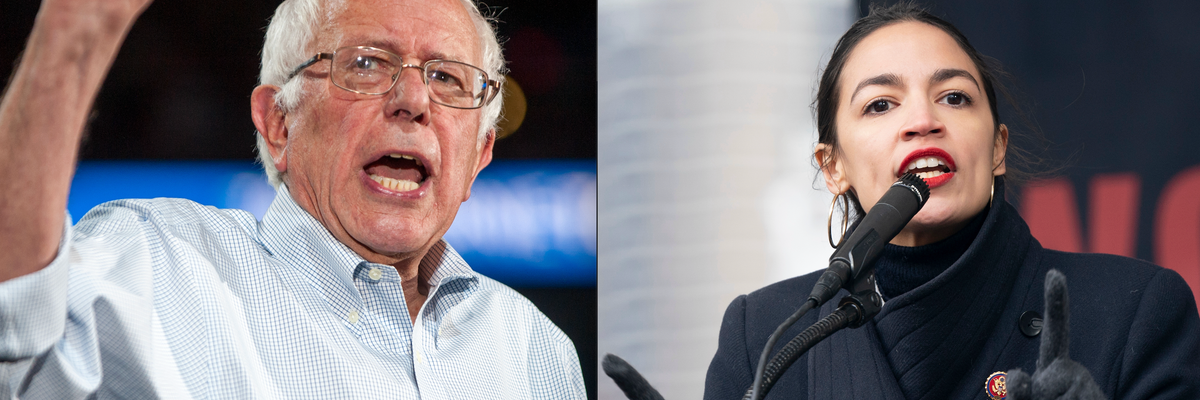Update 5/20, 6:40 a.m. ET : Sen. Bernie Sanders (D-Vt.) says he is prepared to introduce a bill in the Senate today that would put a hold on the $735 million sale of precision guided missiles to Israel.
***
As the Biden administration muddles through efforts to end the fighting in Israel and Gaza, progressives in Congress appear to be stepping in to fill the leadership vacuum.
One day after House Foreign Affairs Committee chair Rep. Gregory Meeks (D-N.Y.) reversed course on his plan to ask the White House to pause an arms sale to Israel amid the ongoing fighting, Reps. Alexandria Ocasio-Cortez (D-N.Y.), Rashida Tlaib (D-Mich.), Mark Pocan (D-Wis.), and Ilhan Omar (D-Minn.) announced on Wednesday that they would introduce a resolution disapproving of the sale.
“The United States should not be rubber-stamping weapons sales to the Israeli government as they deploy our resources to target international media outlets, schools, hospitals, humanitarian missions and civilian sites for bombing,” Rep. Ocasio-Cortez said on Twitter. “We have a responsibility to protect human rights.”
The measure is unlikely to go very far as the period for congressional review expires on Friday, but supporters praised its symbolism.
“This is a historic day.” said Raed Jarrar, advocacy director for the human rights group Democracy for the Arab World. “Congress has never attempted to block an arms sale to Israel before, and it sends a clear message to the Israeli government that its days of impunity are coming to an end.”
Meanwhile, in the Senate, Sen Bernie Sanders (I-Vt.) announced on Wednesday that he would block a GOP-led resolution offering “full and unequivocal U.S. support” for Israel’s bombardment of Gaza with a resolution of his own calling for an immediate ceasefire and supporting diplomatic effort to resolve the conflict.

















